To further strengthen collaboration with world-class universities and research institutions and promote international exchange of medical innovation and scientific achievements, the 2025 International Joint Medical Symposium was successfully held at the Pudong Campus of Shanghai Jiao Tong University School of Medicine (SJTUSM) from October 22 to 24. The symposium was hosted by SJTUSM and co-organized by the Yong Loo Lin School of Medicine, National University of Singapore (NUS); the Faculty of Biology, Medicine and Health, University of Manchester (UoM); and the Cancer Research Cluster of the Auvergne-Rhône-Alpes Region (CLARA), France.
Distinguished guests including Prof. Chong Yap Seng, Dean of NUS Yong Loo Lin School of Medicine; Prof. Roger Foo, Vice Dean; Prof. Keith Brennan, Vice Dean of the University of Manchester Faculty of Biology, Medicine and Health; and Prof. Qing-Jun Meng, Associate Dean for International Relations, attended the opening ceremony and engaged in discussions with SJTUSM leadership.
The symposium, themed “Artificial Intelligence in Medicine, Cancer, and Aging,” brought together medical experts, young scholars, and researchers from China, the UK, France, and Singapore to discuss cutting-edge topics such as AI applications in medicine, novel cancer treatment strategies, and the biological mechanisms of aging and healthy longevity.
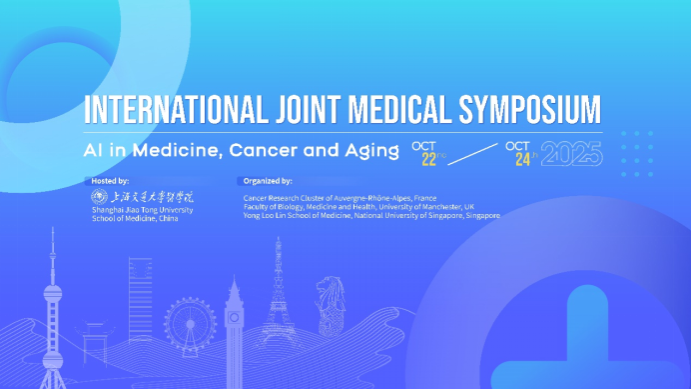
Spanning three days, the symposium featured a diverse and rich program.
At the opening ceremony on October 22, Prof. Li Xinghua, Deputy Party Secretary of SJTUSM, delivered a welcoming address, warmly greeting all international partners and expressing expectations for deeper global collaboration in medical research. He emphasized that in today’s era of rapid advances in medicine and life sciences, no single country or institution can tackle increasingly complex health challenges alone. Only by uniting global expertise and breaking the boundaries of geography and discipline can new vitality be injected into global health development. Following the opening, experts presented and discussed topics in medical AI and oncology, covering frontier areas such as AI-driven drug design, neuroimaging and AI in neurological research, mRNA-based therapies, and tumor microenvironment and immune regulation.
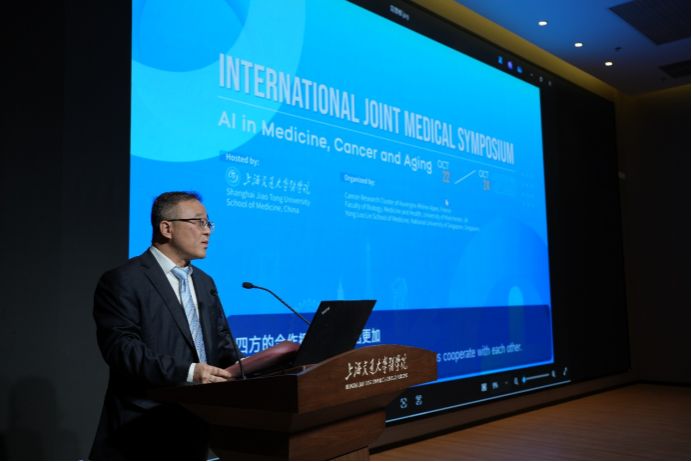
Prof. Li Xinghua delivering the opening remarks
On the afternoon of October 22, Prof. Bi Yufang, Vice Chancellor of SJTUSM, accompanied Prof. Keith Brennan and his delegation from the University of Manchester to the Shanghai Municipal Science and Technology Commission (STCSM) for a meeting to explore deeper collaboration between the two universities under the guidance and support of STCSM.
Mr. Zhao Quan, Director of the Division of International Cooperation at STCSM, received the delegation and chaired the discussion.
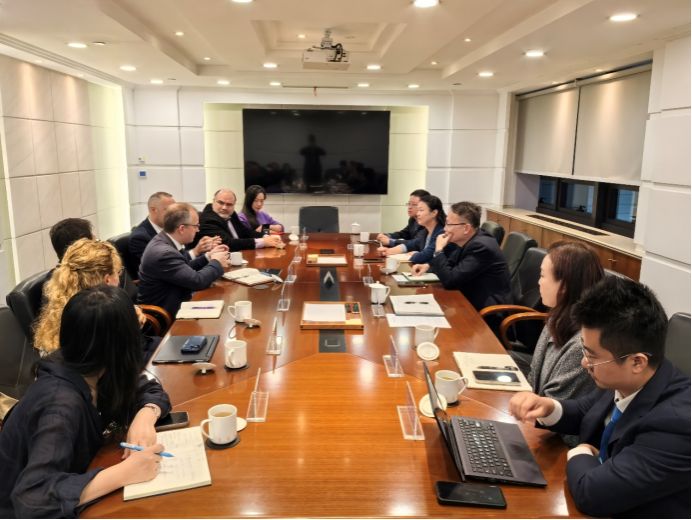
SJTUSM representatives and UoM delegation at STCSM
The October 23 sessions focused on the theme of aging, covering topics such as the molecular mechanisms of age-related diseases, digital health interventions, and geriatric oncology models.
In the afternoon, experts from all participating countries joined a roundtable discussion titled “Future Trends and Global Collaboration in Medical Innovation,” chaired by Prof. Cheng Ching-Yu, Director of the Centre for Innovation and Precision Eye Health at NUS. The panel featured lively exchanges on how cross-border cooperation can accelerate medical and technological innovation.
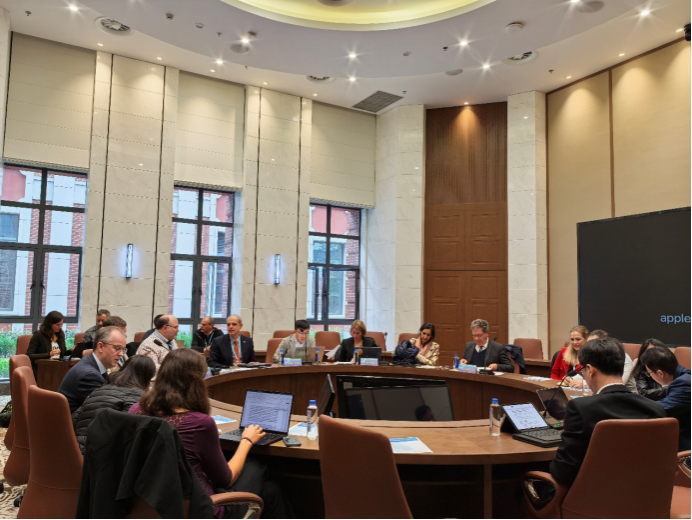
The Future Trends and Global Collaboration in Medical Innovation roundtable discussion
On October 24, delegates visited the Department of Laboratory Animal Science and research laboratories led by Prof. Cheng Xi and Prof. Tang Yujie at the Basic Medical Sciences College of SJTUSM, gaining firsthand insight into the university’s latest achievements in basic and translational medical research.
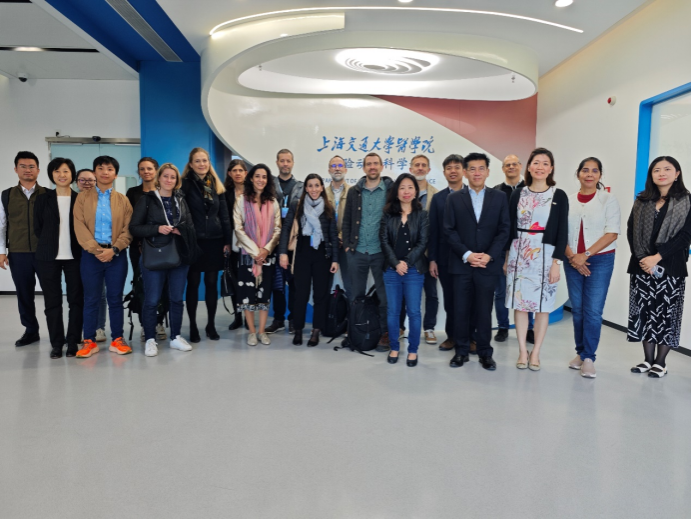
Delegates at the department of Laboratory Animal Science
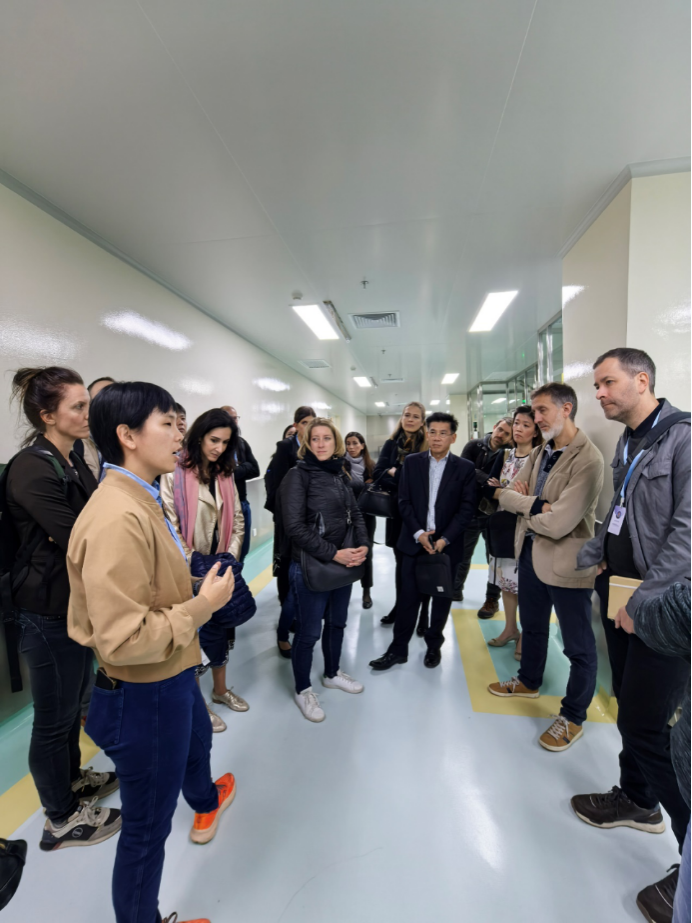
Lu Jin from the Department of Laboratory Animal Science introduces the facilities to the foreign experts.
About the Partner Institutions
Yong Loo Lin School of Medicine, National University of Singapore (NUS)
Founded in 1905, the NUS Yong Loo Lin School of Medicine is Singapore’s oldest and one of Asia’s leading institutions for medical education and research. The school is dedicated to advancing innovation in medical education, breakthroughs in research, and improvements in public health. With strengths in basic medicine, clinical research, precision medicine, and digital health, it has cultivated generations of medical professionals with both global vision and humanistic care. The school maintains close collaborations with top universities and research centers worldwide, driving regional and international integration of research, education, and clinical practice.
Faculty of Biology, Medicine and Health, University of Manchester (UoM)
The Faculty of Biology, Medicine and Health at the University of Manchester is one of the most influential medical research and education institutions in the UK and Europe. It integrates multiple disciplines—from biology to medicine and health sciences—and promotes research across the full spectrum from basic science to clinical translation. Closely collaborating with the UK’s National Health Service (NHS) and leading international research organizations, the faculty focuses on major areas including cancer, cardiovascular disease, neuroscience, precision medicine, and aging. It is renowned for its interdisciplinary innovation, international partnerships, and the cultivation of globally impactful researchers and medical professionals.
Cancer Research Cluster of the Auvergne-Rhône-Alpes Region (CLARA), France
Established in 2003, CLARA is a key component of France’s national Canceropôle network. It brings together the research strengths of universities such as Université de Lyon and Université Clermont Auvergne, as well as INSERM, CNRS, hospitals, and industry partners across central and eastern France. The cluster promotes interdisciplinary research and technological innovation in cancer studies, covering molecular mechanisms, early diagnosis, biomarker development, precision therapies, and patient quality of life. CLARA also actively fosters international cooperation and maintains long-term partnerships with leading universities and research institutions across Europe and Asia, contributing significantly to the global fight against cancer.

